This article was co-authored by Michelle Shahbazyan, MS, MA. Michelle Shahbazyan is the Founder of The LA Life Coach, a concierge life, family, and career coaching service based in Los Angeles, California. She has over 10 years of experience with life coaching, consulting, motivational speaking, and matchmaking. She has a BA in Applied Psychology and an MS in Building Construction and Technology Management from Georgia Tech University, and a MA in Psychology with an emphasis on Marriage and Family Therapy from Phillips Graduate University.
There are 7 references cited in this article, which can be found at the bottom of the page.
This article has been viewed 244,949 times.
Maybe you freaked out at your partner and acted out inappropriately or you made rude comments to your boss during a stressful day at work. Though it is never pretty, bad behavior can happen and often it is often triggered by anxiety, anger, stress, or confusion. If you have behaved badly, you can apologize effectively and increase your chances of getting back into the person’s good graces.
Steps
Expressing Your Apology in Words
-
1Take some time to compose yourself before you apologize. Though you may want to throw yourself at the mercy of the person you have offended as soon as you realize your bad behavior, you may want to wait a little before apologizing. Depending on how bad your behavior was, you may take a day away from the person to give them some space and let your emotions cool down.
- Taking some time to compose yourself will also allow you to think about how you plan to apologize and what you are going to say in your apology. Often, a well thought out and clear apology a day after the offending incident can be more effective than a casual, awkward apology right after the incident.
-
2Write an apology letter. If you are struggling to put your apology into words, you may want to try sitting down and composing an apology letter. Sometimes, writing down your thoughts and feelings can help you get a better sense of what you want to say to the person. It will also force you to confront your bad behavior and consider why you acted badly. Identifying the reason(s) for your bad behavior may allow you to write a more sincere and clear apology to the person. Though you may not actually give the letter to the person, writing down your thoughts can help you to craft a better in person apology.
- In your letter, you should focus on saying “I’m sorry” but without adding any excuses for your behavior. Avoid saying “I’m sorry for my behavior, but I am under a lot of stress” and instead say, “I’m sorry for my behavior and for the way I treated you. I was stressed, and I took it out on you, which was inappropriate.” Replacing the word but with the word and can be a good start.
- You should also try to empathize with the person’s point of view in your letter, noting that you understand why the person may be upset at you. You should also make a point of promising that you will try to act more appropriately in the future, as this shows you are making an effort to correct your behavior.
- End the letter on a positive note, stating that what you did will never happen again and that you hope you can both move past the incident. You may want to sign the letter, “Sincerely” to show that you are trying to be honest and truthful.
Advertisement -
3Apologize one on one in a quiet, private area. If you decide to apologize in person, you should make sure you make the apology in a quiet, private area. This could be in your office at work, in a conference room, in your home, or in a quiet area of the library at school. Apologizing in a private area, one on one, will allow you to be honest and upfront about your feelings.
- If the person is very upset at you for your behavior, you may want to suggest a public place that feels neutral and safe for both of you, such as a coffee shop close by where the person lives or a bar.
-
4Accept responsibility for your behavior.[1] You should start your apology by discussing your bad behavior and acknowledging that it was inappropriate. Be specific when discussing your bad behavior, as this will show the person that you are able to take responsibility for your actions. Doing this will indicate you are willing to admit you were wrong, which will likely make the person more willing to forgive you.[2]
- For example, you may say, “I was wrong to yell at you during the meeting with the shareholders. I was also wrong to swear at you and use inappropriate language when I spoke to you.”
-
5Express regret for your behavior. Once you have acknowledged your behavior and acknowledged it was inappropriate, you should express sincere regret for your words and actions. This will let the person know that you are aware you caused them discomfort or pain. You are trying to connect emotionally with the person so try to be as honest and sincere as you can.[3]
- For example, you may say, “I realize that my words and actions were wrong and I regret that I let my anger get out of hand. I know that I hurt you and embarrassed you, and I am sorry for my behavior.”
-
6Make a promise to change your behavior. You should offer some way of making up for your behavior, whether this is a promise that you will never act the way you did again or a promise that you will talk to the person with respect rather than lash out at them in the future. You should make a realistic promise to the person as a way to strengthen your apology. Make sure your promise notes your desire to change your behavior so you do not act badly again.[4]
- For example, you may say: “I promise that I will never speak out again in a meeting and speak inappropriately to you or to others.” You may also say, “I know I keep lashing out at you and I do not want to keep behaving this way. I will work on how I process my emotions and make sure I do not take them out on you.”
- Another option is to ask the person how you can make it up to them and let them dictate their expectations for you. This may be a useful option if you are apologizing to a partner or spouse and want them to give you input on how you can make up for your bad behavior. You may ask, “How can I make up for my behavior?”
-
7Ask for forgiveness. You should end your apology by asking for forgiveness for your actions. Requesting forgiveness and putting yourself at the mercy of the person will show that you are sincere in your apology.[5]
- Always form the request for forgiveness as a question, rather than a statement. You want the forgiveness element to feel like you are at the mercy of the person, rather than demanding something of them. You may say, “I’m sorry I behaved the way I did. I know I behaved inappropriately. Will you forgive me?”
Taking Actions to Apologize
-
1Offer compensation for any damaged items due to your behavior. If you have acted badly towards a colleague or an acquaintance, such as spilling coffee on your colleague’s shirt or missing a lunch with an acquaintance, you may want to offer some form of compensation. This could be a redeeming action that is tangible, like paying for dry cleaning the stained shirt or paying for lunch with the acquaintance to make up for missing it the first time. The action of at least offering to compensate the person will often show that you feel bad and want to try to make up for your behavior.[6]
- Offers of compensation can be financial if you have damaged someone else’s property due to your behavior. You can also offer compensation through other kind actions, like paying for the person’s coffee if you spill theirs by accident or helping someone replace their broken phone if you accidentally sent theirs into the toilet.
-
2Give the person an apology gift. Another way to make up for bad behavior is to surprise the person you have offended with an apology gift. This could be a standard apology gift, like a bouquet of flowers or a box of sweets. Leave the gift on their desk or have them delivered with a card noting how sorry you are. The small gift may at least help them work toward letting go of their anger toward you and accept your apology.
- You could also think of a gift that seems particular to the person, like a mug with their favorite celebrity on it or a box of their favorite chocolates. Thoughtful, personal gifts are usually a big hit and can show the person that you feel bad for your behavior.
-
3Do something for the person that will make their day. You can also do something nice for the person that will improve their day and show them you want to make up for your behavior. This could be surprising them by taking them out to lunch or bringing them their favorite lunch at work. You could also plan an outing just the two of you to make up for missing an appointment with the person.
- Often, kind acts should be done along with an apology in words. You may need to compose a thoughtful, heartfelt apology and share it with the person, as well as do a kind act, to help the person forgive you.
Following Up on the Apology
-
1Give the person time to process your apology.[7] Once you have apologized to the person through words and/or actions, it is important that you give the person time to process your apology. Do not expect the person to forgive you right away or say, "no big deal" after you apologize. It may take time for the person to accept your apology and move forward from your bad behavior.[8]
- You may need to give the person space and spend time away from them so they are able to process their emotions towards you and find it in their heart to forgive you.
- Be patient when giving a person time. Just because you think enough time has passed does not mean it's true. That person might need more time than you realize.
- Whether the person accepts your apology or not, make sure you listen to their response. Though it may be difficult to hear how you have hurt this person, listening to what they have to say is a fundamental part of taking responsibility for your actions.[9]
-
2Be kind to the person, even if they are still upset at you. If the person does not say, "I forgive you", you may be frustrated or annoyed at them, especially if you have presented a heartfelt apology. But you cannot force the person to forgive you and being rude or unkind to them will only make the situation worse. Instead, focus on showing kindness and consideration to the person, even if they are cold to you.[10]
- Go out of your way to be nice to them. Show them that you still want to be friends, even if they haven't forgiven you yet.
-
3Focus on changing your bad behavior. If the person does not accept your apology, you may need to turn inward and focus on changing your bad behavior permanently. Put your changed self into action and show the person that you are trying to get better at maintaining healthy relationships and boundaries. Over time, the person may see that you have changed and consider renewing your relationship again.
- Remember, actions speak louder than words. Acting more responsible and considerate will help show the person that you are trying to change.
Community Q&A
-
QuestionI yelled at my friend, how should I apologize?
 Community AnswerJust say sorry. Go up to him/her and say: "Look, I'm sorry for yelling at you. I was just angry. Can we still be friends?" If they're still upset, give them a day or two to get over it. Hopefully then you can both move on.
Community AnswerJust say sorry. Go up to him/her and say: "Look, I'm sorry for yelling at you. I was just angry. Can we still be friends?" If they're still upset, give them a day or two to get over it. Hopefully then you can both move on. -
QuestionI threw a tag at my friend's eye, how do I say sorry?
 Community AnswerJust apologize. Don't make any excuses. If it was an accident, tell them you didn't mean it. Otherwise, promise it won't happen again.
Community AnswerJust apologize. Don't make any excuses. If it was an accident, tell them you didn't mean it. Otherwise, promise it won't happen again. -
QuestionI was the cause of fights at family parties. How should I react?
 Ignatius WasikeCommunity AnswerApproach the person you wronged directly in private or at a family meeting, then apologize. Moreover, do something for the person as a self-chosen punishment, such as cleaning for them or running some errands.
Ignatius WasikeCommunity AnswerApproach the person you wronged directly in private or at a family meeting, then apologize. Moreover, do something for the person as a self-chosen punishment, such as cleaning for them or running some errands.
References
- ↑ Michelle Shahbazyan, MS, MA. Life Coach. Expert Interview. 18 March 2020.
- ↑ https://www.frontiersin.org/articles/10.3389/fpsyg.2020.00284/full
- ↑ https://hbr.org/2016/11/the-4-types-of-ineffective-apologies
- ↑ https://kidshealth.org/en/teens/apologies.html
- ↑ https://au.reachout.com/articles/how-to-say-sorry-and-mean-it
- ↑ https://hbr.org/2013/06/the-most-effective-ways-to-mak
- ↑ Michelle Shahbazyan, MS, MA. Life Coach. Expert Interview. 18 March 2020.
- ↑ http://www.wsj.com/articles/the-best-way-to-make-up-after-any-argument-1405379667
- ↑ Michelle Shahbazyan, MS, MA. Life Coach. Expert Interview. 18 March 2020.
- ↑ Michelle Shahbazyan, MS, MA. Life Coach. Expert Interview. 18 March 2020.
About This Article
To apologize after bad behavior, accept responsibility for what you did and express regret for doing it. For example, you could say something like, "I was wrong to yell at you the way I did, and I regret letting my anger get out of hand." You should also promise the person that you'll change your behavior and that it won't happen again. For example, you could say, "I'll work on how I handle my emotions, and I'll stop taking them out on you." At the end of your apology, ask for forgiveness with a simple, "Will you forgive me?" For more advice from our Expert co-author, like how to show you're sorry through your actions, read on!


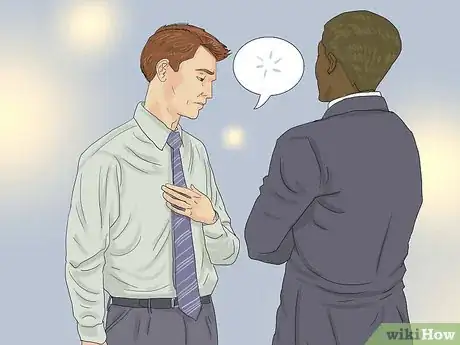


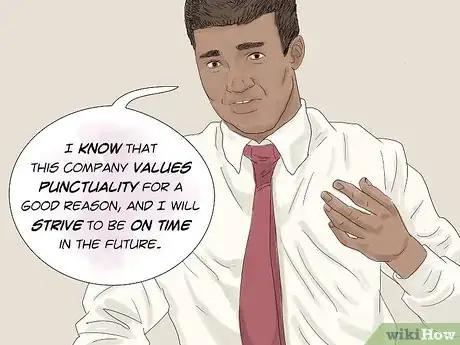
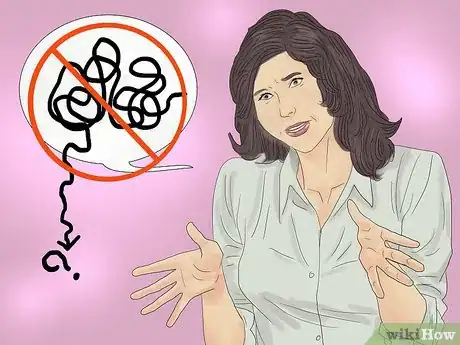
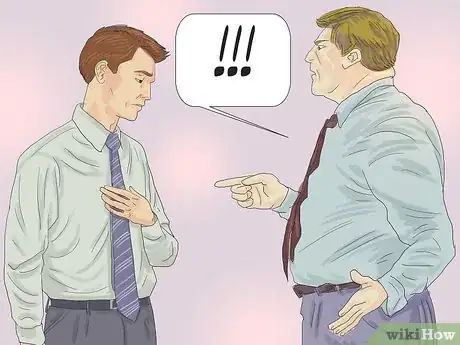
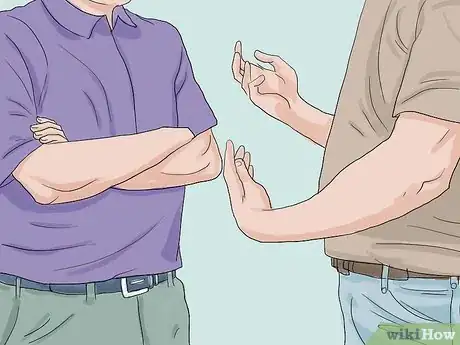













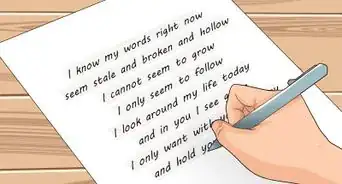
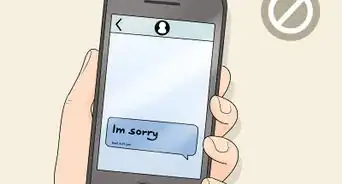

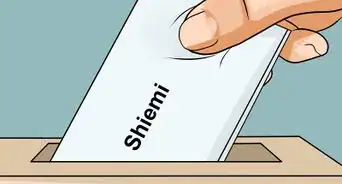


















































Medical Disclaimer
The content of this article is not intended to be a substitute for professional medical advice, examination, diagnosis, or treatment. You should always contact your doctor or other qualified healthcare professional before starting, changing, or stopping any kind of health treatment.
Read More...